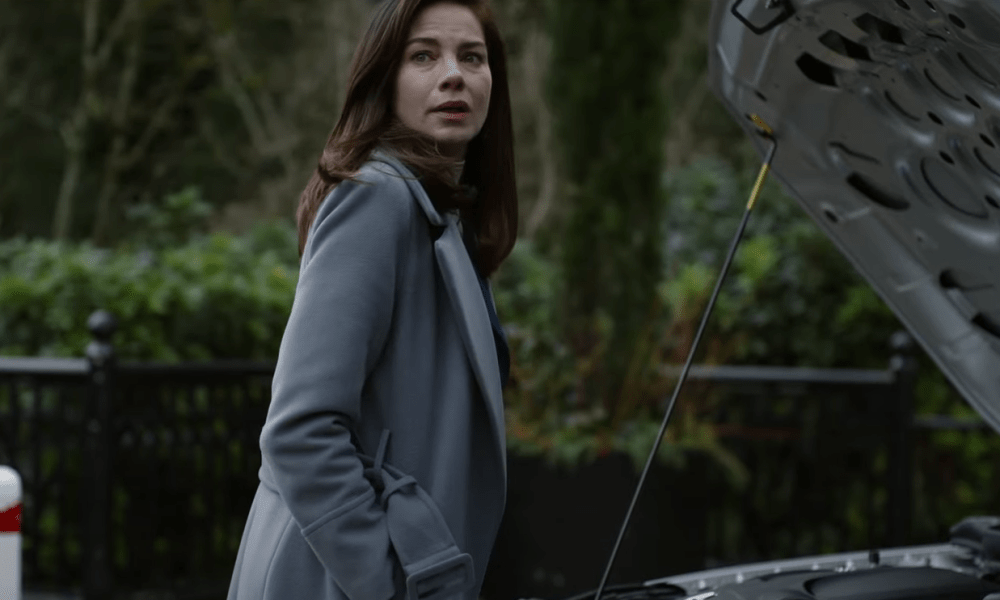Reviewed by GREG KING
Director: Vaughn Stein
Stars: Casey Affleck, Michelle Monaghan, Sam Claflin, Emily Alyn Lind, India Eisley.

Production began on this B-grade psychological thriller back in 2012. The film was originally titled You Belong To Me, but for numerous reasons production was halted in 2012. In 2019 production began again on a rejigged version and it was released with a new director and cast, and a new title that shares the same name as a song by the British rock band The Police. The film has an interesting concept but is let down a little in the execution. And by a vague sense that we have seen this sort of thing before.
Philip Clark (played by Casey Affleck) is a psychiatrist who has been treating Daphne (Emily Alyn Lind), a troubled patient. But, when the usual treatments seem to be failing, he adopts a more unorthodox approach. He opens up to Daphne about his own recent personal trauma in which his young son was killed in a car crash three years earlier. Since the accident he has grown distant from his wife Grace (Michelle Monaghan, who co-starred opposite Affleck in the thriller Gone Baby Gone) and his rebellious, troubled and self-destructive teenage daughter Lucy (India Eisley, from tv series The Secret Life Of The American Teenager, etc), who has just been expelled from boarding school. This approach provides a breakthrough with Daphne who is seemingly cured and on the path to recovery.
But then Daphne seemingly commits suicide. As Philip tries to process this unexpected turn, he meets Daphne’s grieving brother James (Sam Claflin, from The Hunger Games, etc), a novelist. James slowly begins to ingratiate himself into Philip’s family, taking an unhealthy interest in Lucy. But there is something sinister and unsettling about James that arouses Philip’s suspicions. James also shows up at Grace’s real estate dealing, and slowly seduces her.
Meanwhile anonymous letters are being sent to Philip’s superior Dr Fanning (German actress Veronica Ferres, recently seen in Crisis, etc) criticising his handling of his patients and demanding that he be sanctioned. There are no surprises for guessing who is responsible for these letters. James turns out to be a stalker, a nutcase, although more restrained than either the bunny boiler Glenn Close, Jessica Walters or Robert De Niro in similar roles. The relationship between James and teenaged Lucy becomes unsettling, and is reminiscent of the tension and disturbing sexual undercurrents between De Niro and Juliette Lewis in the Martin Scorsese remake of Cape Fear.
Cast against type, Claflin initially brings a charm to his performance before he unleashes his manic rage, menacing persona and creepy demeanour, and his chilling performance here is easily the film’s standout. Affleck’s performance as the quiet and reserved Philip is quite subdued and almost introverted here.
In dealing with themes of grief and coping with the aftermath of traumatic experience, this film shares some similarities with Affleck’s Manchester By The Sea, but here the material plays out more as a psychological thriller. The script has been written by first time feature writer David K Murray, and while it deals with themes of dysfunctional families, grief, relationships, paranoia and mental illness it does become a little cliched, predictable, and overly melodramatic by the end. The characters themselves are cliched and a little underdeveloped.
This is the third feature directed by Vaughn Stein (The Terminal, etc). Stein’s use of a predominantly greyish and bleak palette gives the film an oppressive look and cold feel and creates a suitably grim mood. Every Breath You Take is certainly atmospheric with some striking cinematography from Michael Merriman (who previously worked with Stein on Inheritance) which captures the natural beauty and scenery of Vancouver, which doubles for the Washington state setting. His camera often lingers on a scene and on the grey overcast skies that threaten doom. The superb production design from Jeremy Stanbridge (Good Boys, etc) creates the Clarks’ sprawling and tastefully furnished yet somehow sterile house with its long and thin swimming pool. The ominous score from Marlon Espino also adds to the unsettling mood.
Every Breath You Take is a slow burn thriller and Stein slowly ratchets up the suspense, leading to a somewhat cliched final confrontation. But ultimately this is something of an undercooked thriller full of familiar ingredients and ideas that have been explored in other, more superior films.
★★☆



